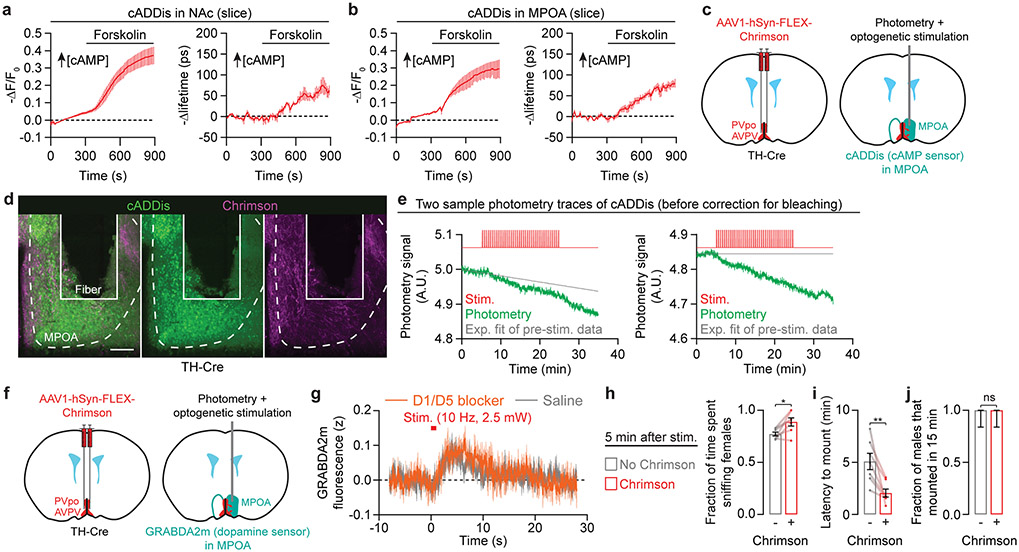Extended Data Fig. 6 ∣. Measuring cAMP production with the sensor cADDis in brain slices and in vivo.
a,b, Application of forskolin (an activator of adenylyl cyclase) to brain slices of NAc (a) and MPOA (b) induces cAMP production, as measured using the cAMP sensor cADDis. cAMP production can be measured from changes either in fluorescence intensity or in fluorescence lifetime of cADDis (a: n = 6 slices from 3 mice; b: n = 2 slices from 2 mice). Photobleaching is only observed in the intensity traces (e.g., prior to application of forskolin). The y-axes are flipped to make the plots more intuitive, as cADDis fluorescence intensity and fluorescence lifetime both decrease with increasing cAMP.
c, Experimental design for cADDis photometry in the MPOA with Chrimson stimulation of AVPV/PVpo dopamine neurons.
d, Histology of cADDis expression, dopamine axons, and fiber location in the MPOA (scale bar: 200 μm).
e, Raw photometry measurements of cADDis fluorescence intensity in the MPOA of awake, head-fixed males (during two example trials) show a persistent, downward deflection (increase in cAMP) after stimulating dopamine axons in the MPOA (red). Gray traces are mono-exponential fits of the pre-stimulation photometry data (fitted using the first 5 min of the traces), in order to estimate and account for the effects of photobleaching. A.U., arbitrary units.
f, Experimental design for GRABDA2m61 (a D2-based dopamine sensor) photometry in the MPOA, together with Chrimson stimulation of AVPV/PVpo dopamine neurons.
g, Blocking D1/D5 transmission with SCH23390 (0.6 mg/kg, i.p.) did not affect optogenetically evoked dopamine release (n = 5 males).
h-j, Repeated optogenetic stimulation of AVPV/PVpo dopamine axons in the MPOA (from data collected from the same experiments as in c-e) increased male appetitive sniffing behavior (h: n = 7 males) and decreased mounting latency (i: n = 7 males). But this stimulation did not further increase the fraction of males that mount in the first 15 minutes after introduction of the female, as this fraction was already at ceiling in the absence of stimulation (j: n = 14 trials from 7 males each, mean ± 95% c.i.).
Mean ± s.e.m. unless otherwise specified. See Supplementary Table 1 for statistics.

